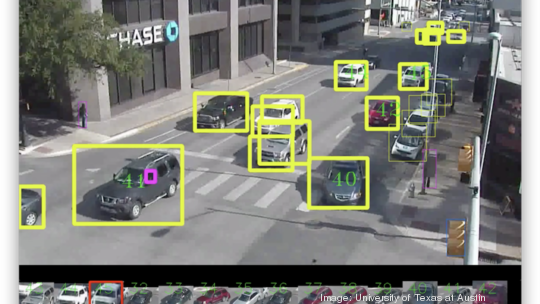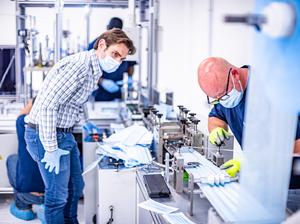
In a major achievement for the Austin tech and academic communities, The National Science Foundation picked The University of Texas to lead a new effort to develop advanced algorithms with applications in medical imaging diagnostics, video recognition and other potential game changers.
The NSF AI Institute for Foundations of Machine Learning includes a $20 million investment from the Foundation, which is part of a broader, nationwide investment in AI research and development of more than $100 million.
And that investment is just one part of UT’s increasing focus on AI and machine learning.
The university is also adding a new Machine Learning Laboratory to its computer science department, which will be home to the new AI institute. That’s fueled by a donation from Zaib and Amir Husain. Amir is founder and CEO of AI startup SparkCognition, which last year raised a $100 million round of investment. Zaib, his wife, is founder of Makerarm, a desktop scale robotic fabrication system.
“The university’s strengths in computer science, engineering, public policy, business and law can help drive applications of AI,” Amir said in a news release. “And Austin’s booming tech scene is destined to be a major driver for the local and national economy for decades to come.”

UT’s computer science and machine learning expertise will lead a team of researchers at Microsoft, as well as other schools, including the University of Washington and Wichita State University. The new institute and machine learning lab will be led by computer science professor Adam Klivans, and it has already started planning a new online AI masters degree.
“Machine learning can be used to predict which of thousands of recently formulated drugs might be most effective as a Covid-19 therapeutic, bypassing exhaustive laboratory trial and error,” Klivans said in a statement. “Modern datasets, however, are often diffuse or noisy and tend to confound current techniques. Our AI institute will dig deep into the foundations of machine learning so that new AI systems will be robust to these challenges.”
And as useful new algorithms emerge they will be quickly put to the test. Facebook, Netflix, YouTube, Dell Technologies and the City of Austin have all signed on to put those advancements into practice.
UT’s AI institute and machine learning lab are part of an explosion of AI-based research and businesses in Austin. From booming startups like SparkCognition, CognitiveScale and Hypergiant, to organizations like AI Global, a nonprofit focused on ethics in AI, Austin has emerged as one of the leading hubs of AI innovation.
It was recently listed as one of the best places to start an AI company by Analytics Insight. And ReWork, a blog focused on AI and deep learning, named Austin as one of the top 10 cities in the world for AI in 2020.
“Many of the world’s greatest problems and challenges can be solved with the assistance of artificial intelligence, and it’s only fitting, given UT’s history of accomplishment in this area along with the booming tech sector in Austin, that this new NSF institute be housed right here on the Forty Acres,” UT Austin interim President Jay Hartzell said.







